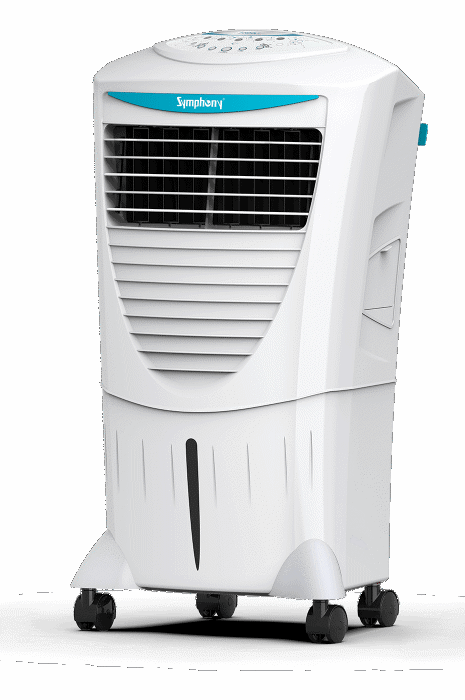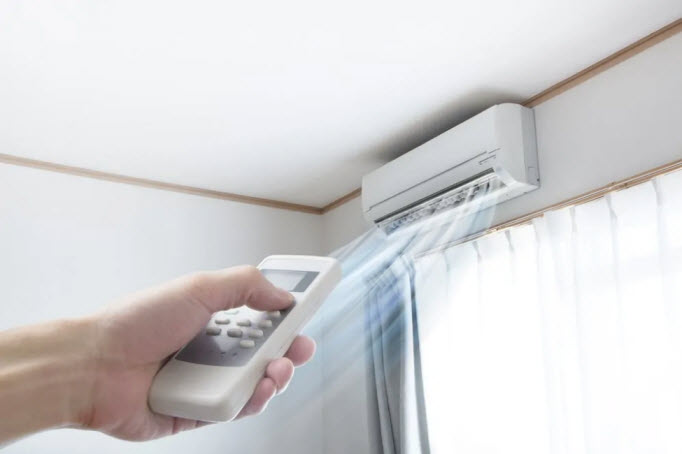Cooling systems play a vital role in maintaining indoor comfort, especially in hot climates. When choosing between evaporative cooling and air conditioning, understanding their differences, benefits, and drawbacks is essential. While both methods provide cooling, their mechanisms, efficiency, and impact on health and the environment vary significantly. This article focuses on evaporative air coolers, highlighting why they are a superior choice for cost-effective, eco-friendly cooling compared to traditional air conditioners.
Understanding Evaporative Cooling
Evaporative cooling, also known as swamp cooling, relies on the natural cooling effect of water evaporation. It works by drawing warm air through water-saturated cooling pads. As the air passes through the wet pads, the heat is absorbed by the water, lowering the air temperature before it is circulated into the living space.
Key Benefits of Evaporative Cooling:
- Energy Efficiency: Uses significantly less electricity than air conditioning, reducing utility costs.
- Eco-Friendly: Does not use harmful refrigerants, making it environmentally friendly.
- Fresh Air Circulation: Continuously replaces indoor air with fresh outdoor air, improving air quality.
- Humidification: Adds moisture to the air, beneficial in dry climates.
- Cost-Effective: Lower purchase, installation, and maintenance costs compared to air conditioners.

How Air Conditioning Works
Traditional air conditioning systems use refrigerants to cool and dehumidify indoor air. They function by extracting warm indoor air, cooling it through a refrigeration cycle, and recirculating it inside. Unlike evaporative cooling, ACs do not bring in fresh outdoor air; instead, they recirculate and cool existing air.
Drawbacks of Air Conditioning:

- High Energy Consumption: AC units use a significant amount of electricity, increasing operational costs.
- Environmental Impact: Uses refrigerants, which can contribute to global warming if not handled properly.
- Air Recirculation: Can lead to stale indoor air, requiring additional ventilation systems.
- High Maintenance: Requires regular filter changes, refrigerant refilling, and compressor servicing.
- Expensive Installation: Requires professional installation and ductwork for central air systems.
Comparing Evaporative Cooling and Air Conditioning
Energy Efficiency
Evaporative coolers consume up to 75% less electricity than traditional air conditioners, making them the ideal choice for energy-conscious consumers. ACs require compressors and refrigerants, significantly increasing power usage.
Cooling Effectiveness
While ACs provide precise temperature control, evaporative cooling offers natural and comfortable cooling without excessive dryness. However, evaporative cooling is most effective in hot and dry climates rather than humid areas.
Air Quality
Evaporative cooling systems introduce fresh outdoor air, reducing indoor pollutants and allergens. In contrast, air conditioners recirculate the same air, which may lead to stale and dry indoor conditions.
Environmental Impact
Evaporative coolers have a minimal carbon footprint because they do not use chemical refrigerants. ACs, on the other hand, rely on hydrofluorocarbons (HFCs), which contribute to greenhouse gas emissions.
Installation and Maintenance
Evaporative coolers are easy to install and require minimal maintenance. Cleaning cooling pads and refilling the water tank are the primary tasks. ACs involve complex installation, frequent servicing, and higher repair costs.
When to Choose Evaporative Cooling?
Evaporative air coolers are an excellent choice if:
- You live in hot and dry climates where humidity levels are low.
- You want an energy-efficient and cost-effective cooling solution.
- You prefer fresh air circulation over recirculated air.
- You are looking for an eco-friendly cooling alternative with minimal environmental impact.
When is Air Conditioning a Better Choice?
Air conditioning might be more suitable if:
- You live in humid climates where evaporative cooling is less effective.
- You need precise temperature control, regardless of humidity levels.
- You prefer dehumidified air, especially in tropical areas.
- You require whole-house cooling with advanced automation.
FAQs on Evaporative Coolers
Evaporative Cooling vs Air Conditioning: Which One Should You Choose?
How does an evaporative cooler differ from an air conditioner?
Evaporative coolers use water evaporation to cool the air, while air conditioners rely on refrigerants and compressors. Evaporative coolers are more energy-efficient and eco-friendly but work best in dry climates.
Is evaporative cooling effective in humid climates?
Evaporative coolers are most effective in dry, arid regions. In humid areas, their cooling efficiency decreases because the air already contains high moisture levels.
Do evaporative coolers use less electricity than air conditioners?
Yes, evaporative coolers consume significantly less electricity—up to <strong>75% less</strong> than traditional air conditioners, making them a cost-effective cooling solution.
How often should I maintain an evaporative cooler?
Regular maintenance includes cleaning the cooling pads, refilling the water tank, and ensuring proper airflow. Depending on usage, pads should be replaced every <strong>6-12 months</strong>.
Can an evaporative cooler be used indoors?
Yes, evaporative coolers can be used indoors, but they require proper ventilation. They work best in open areas where fresh air can circulate efficiently.
Are evaporative coolers environmentally friendly?
Yes, they do not use chemical refrigerants and have a lower carbon footprint than air conditioners, making them a greener cooling option.
Conclusion: Why Choose Evaporative Cooling?
While air conditioners offer more consistent cooling, evaporative air coolers provide a natural, cost-effective, and environmentally friendly solution. For those living in dry and hot regions, evaporative cooling is the ideal choice due to its energy efficiency, fresh air supply, and affordability. As concerns about energy consumption and climate change grow, choosing an evaporative cooler over an AC is a smart and sustainable cooling decision.
